I supplement a lot of stuff. My general supplement framework is to add a low dose of something that is already occurring in my body under natural conditions. My experience and thoughts on herbal supplements are discussed at the end.
The following section may be a little technical – feel free to skip it.
Salt
Because my diet contains few processed foods, my salt intake is quite low. Therefore, I supplement with a 1g sodium chloride tablet in the morning.

For a long time, I thought that restricting salt intake was healthy. However, it may be that most of the health benefits of sodium restriction come from the elimination of processed crap. In my opinion, healthy people on a healthy diet are at a greater risk of sodium deficiency than excess.
Omega 3
I supplement with about 2g of EPA/DHA per day. I take it in liquid form because capsules often have unnecessarily high amounts of Vitamin E. To increase bioavailability, I take my fish oil with meals.
Omega 3 fatty acids (EPA/DHA) are important for a lot of different things. They are the building blocks for anti-inflammatory eicosanoids (e.g., resolvins), they act on “master control” transcription factors for metabolism (PPARs), and they are precursors to structural and signaling molecules in the brain.
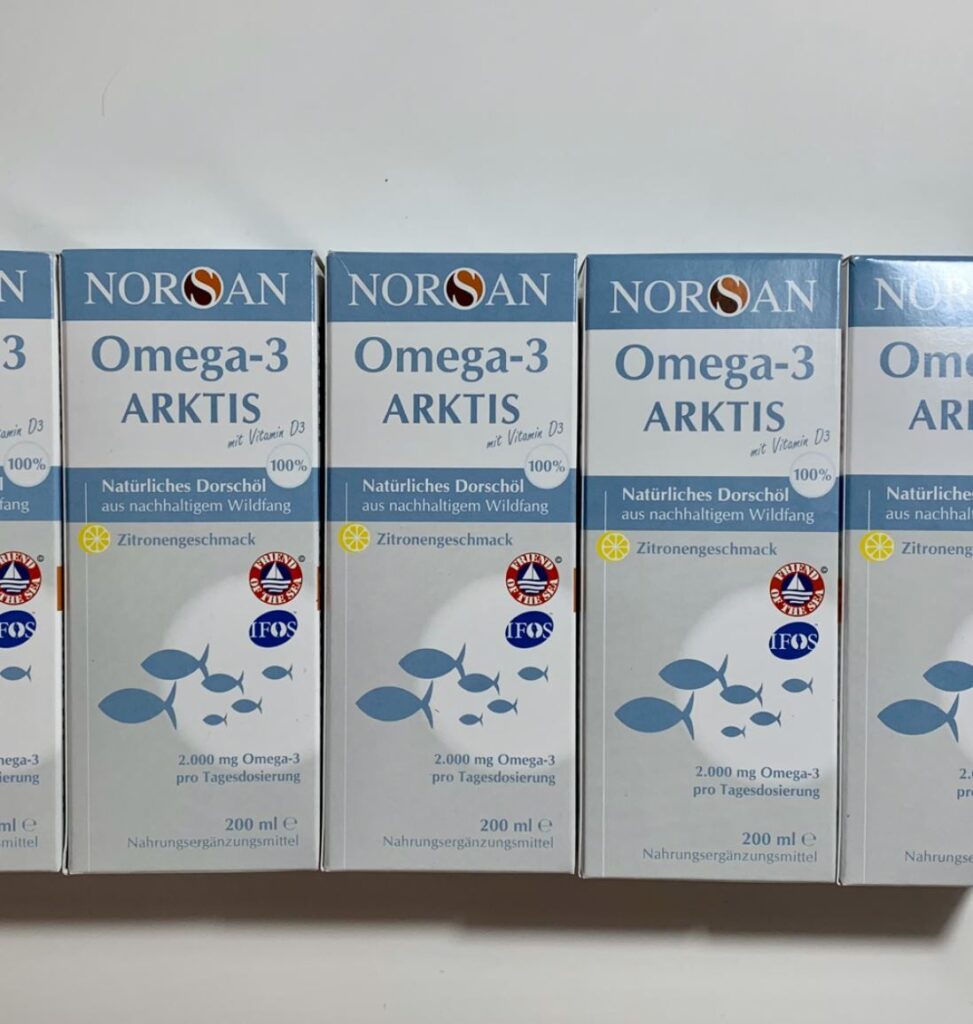
There is evidence that a higher intake may improve metabolic health and lipid markers, lower inflammation, and improve cognition and mood, among other things. Some researchers hypothesize that most people are likely deficient in omega-3 fatty acids by a factor of five or so (based on measurements of phospholipid ratios in the membrane of red blood cells).
Most importantly, epidemiological data hints at the possibility that an increased omega-3 intake may be associated with a reduction in all-cause mortality.
40%-50% of the brain is composed of PUFA. DHA is the main building block and most common in the brain. EPA is less abundant but may have more anti-inflammatory properties compared to DHA. Therefore, elevating O3-fatty acid intake may be somewhat protective against dementia.
Vitamin D
I supplement with 4.000 IU per day, which is likely a dosage that can safely be taken long-term. I titrate my vitamin D intake to a blood level of 40-60ng/dl. Higher levels are not necessarily better and may lead to higher plasma levels of plasma calcium, with potentially deleterious consequences.

Vitamin D is a steroid-like hormone that affects about 5% of the human genome with downstream effects on cognition, mood, immune regulation, and bone metabolism. Just in case, I also supplement with 100mcg vitamin K2, though there seems to be little proper science behind it.
I personally have a couple of single nucleotide polymorphisms associated with lower vitamin D levels. However, does that mean that I need more vitamin D? Unfortunately, blood levels tell me little about what is happening within my cells, and therefore vitamin D blood levels may give an inaccurate picture of cellular action.
In fact, there is a huge range of vitamin D blood levels and it is hard to say whether a vitamin D blood level of 30ng/dl in person A is equivalent to 30ng/dl in person B. All else being equal, if parathyroid hormone (PTH) is high, vitamin D action is (probably) low.
According to Dr. Peter Attia, it is probably best/safest to target a vitamin D level of 40-60ng/dl but not higher than that.
Magnesium
I take 400mg of magnesium citrate or bis-glycinate before bed. I avoid the oxide form as it is poorly absorbed and is mostly useful for helping with constipation.

Due to current harvesting practices, our soils, and consequently a lot of people, are magnesium deficient. Magnesium is needed for hundreds of different enzymes and if magnesium levels are deficient, a lot of cellular processes are not working as intended.
Subscribe to the Desmolysium newsletter and get access to three exclusive articles!
Folate
I take 1mg of L-methylfolate per day. I take the methyl form because I have a couple of genetic polymorphisms (SNPs) associated with poor performance of the MTHFR pathway. Nonetheless, I do not notice anything whether I take it or not.
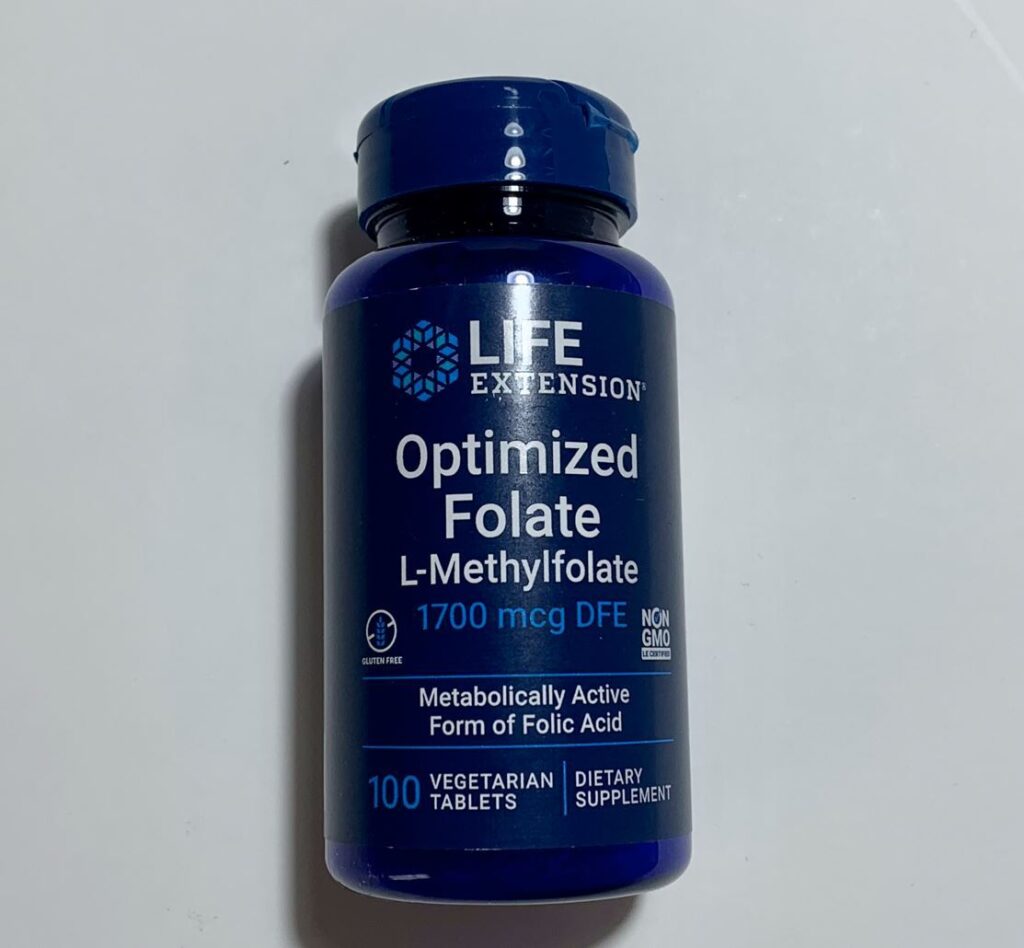
Folate deficiency can wreak havoc on monoamine levels and many aspects of cognition and therefore, a psychiatrist I know frequently prescribes L-methylfolate to his patients.
Quick thoughts on the MTHFR gene. A large proportion of people (probably around 50-60% in the Western world) has one of two common mutations in the MTHFR gene. MTHFR codes for an enzyme that is involved in the methylation cycle. It is commonly thought that carriers of the mutated forms should supplement with methylated versions of B vitamins. For example, this is the reason I supplement with L-methyl folate.
In my opinion, the importance of these “mutations” is highly exaggerated. Furthermore, given their prevalence, these “mutations” should be considered wild-type versions. In my opinion, while it may sound cool to claim that one’s depression or ADHD is ultimately caused by a genetic mutation, this most likely does not represent reality. The most worrisome consequence of being a carrier of these kinds of mutations is elevated levels of homocysteine (which wreaks havoc on vascular health).
The only proven longevity supplement
The only supplement I take that is not naturally occurring in my body is astaxanthin, which is the only proven longevity supplement. I discuss my reasoning in more detail here.
Iron
I check my ferritin levels a couple of times per year. Whenever they are low, I supplement with 80mg sustained-release divalent iron per day for a couple of weeks, but I stop before ferritin levels reach about 50-70mcg/L.

Iron is not just important for red blood cell production, but sufficient cellular iron is also important for a lot of other things. High iron levels are associated with increased mortality – however, it is unclear whether that is a consequence or a cause.
Of note, when CRP levels are not very low (below 0.5mg/dl), ferritin levels may be falsely elevated because cytokines, which stimulate the expression of CRP, also stimulate hepatic ferritin synthesis.
Blood tests are discussed in more detail shortly
Selenium
I take 100mcg of selenium per day. Next to being a potent antioxidant, selenium is a component of deiodinase enzymes, which are responsible for converting the prohormone T4 into the active thyroid hormone T3. I discuss thyroid hormones here.
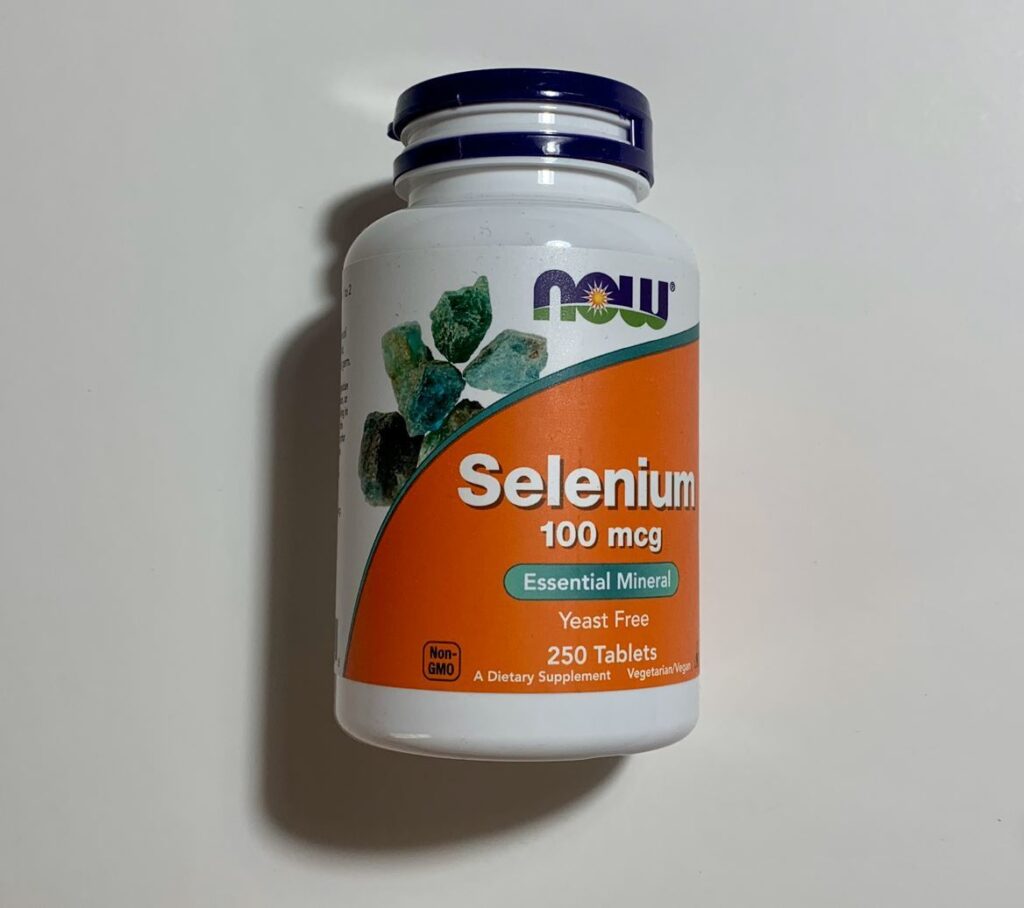
Vitamins
Every couple of days, I take a low dose of a vitamin B complex with a just-in-case mentality. I also take 250mg of vitamin C per day.
I regularly supplement with vitamin D and B12 and monitor my levels through blood tests. Because my vitamin B12 does hardly improve with oral supplementation, I inject 3mg B12 twice per year intramuscularly, which improves serum and storage levels for a long time.
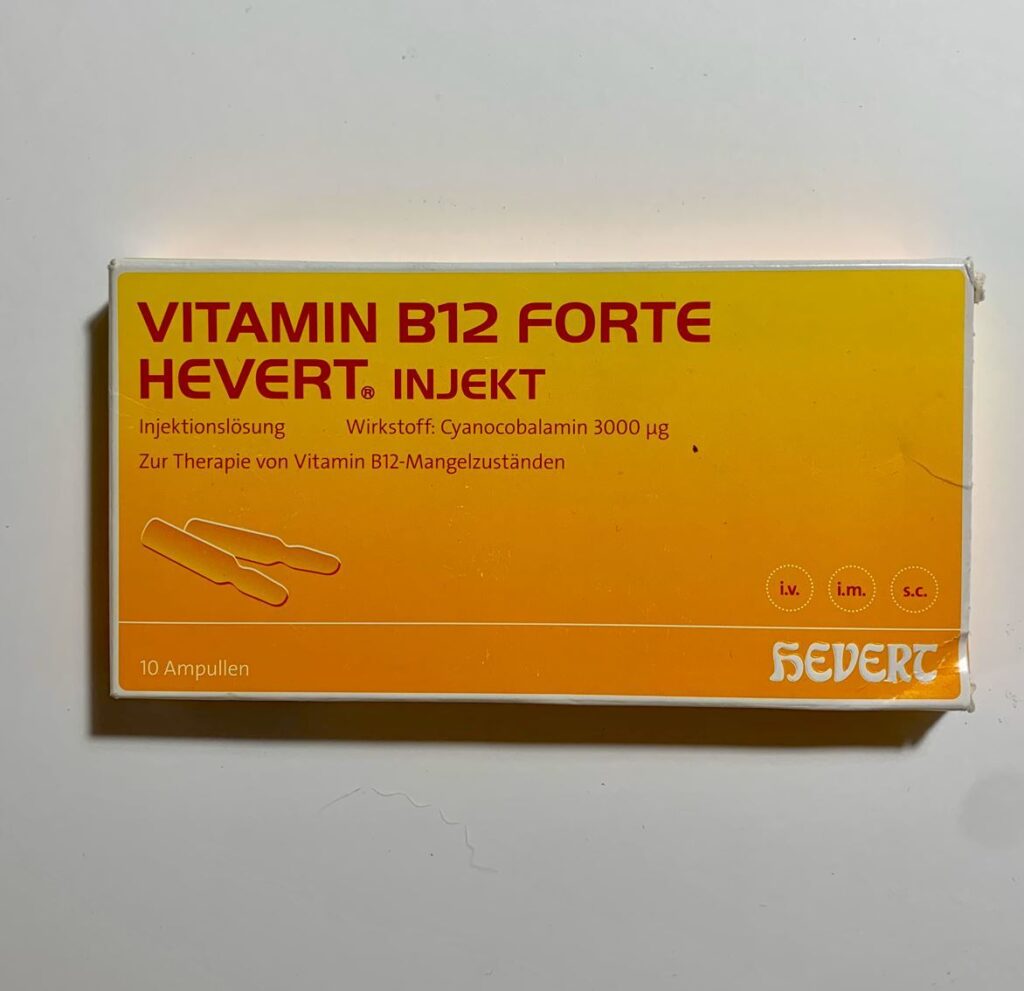
Niacin
Sometimes, I take 250mg of flush-niacin. Niacin is vitamin B3. Niacin is known to reliably elevate intracellular NAD+ levels to a similar extent as the much more expensive supplements NMN or NR – which are mostly a marketing scam.

Furthermore, niacin activates the hydroxycarboxylic acid receptor 2, which causes flushing (good for the skin), prevents lipolysis and therefore lowers blood lipids, which on the one hand leads to rebound ketogenesis (good) but also increases insulin resistance for a couple of hours. Furthermore, HCA 2 receptor activation also has anti-inflammatory effects in a variety of tissues.
I particularly love the flush and I find it to be quite stimulating. For example, when I am tired but I need to work on something, taking 250mg of niacin stimulates me for a couple of hours, presumably due to flushing causing a loss of body heat or due to the elevation in blood ketone levels. Whatever the case, it essentially replaces taking a stimulant. Stimulants are discussed in more detail here.
The major downside of flushing is that my voice gets hoarse and weak for a couple of hours after, presumably due to the flushing-induced laryngeal edema. Of note, a friend got ocular edema from high-dose flush-niacin, so this is something to watch out for. Furthermore, high-dose niacin intake can increase uric acid levels.
Some mental health researchers swear by high-dose niacin but whether there is anything to it is not known.
Tri-methyl-glycine
I take 1g of TMG per day to replete hepatic methyl-groups (which are known to be depleted by niacin), and to reduce homocysteine levels (an autoreactive metabolite thought to speed up the progression of atherosclerosis).

Creatine
For a long time, I did not take creatine because even 1 gram per day of the monohydrate caused me to retain a lot of water and to look like Mrs. Puff. I also felt bloated and had gut issues. I have none of these problems with creatine HCL, of which I take 1 gram per day.
With creatine HCL I do get intracellular water retention (as measured by the scale and judged on muscle fullness) but it does not cause me to hold water subcutaneously – at least not to a noticeable degree. I speculate that subcutaneous water retention is not related to the creatine itself but rather due to the creatine-induced gastrointestinal bloating, which, presumably through vagal afferent nerve fibers, causes an increased hypothalamic release of antidiuretic hormone (ADH), similar to what happens when people have diarrhea. This is pure speculation, however.
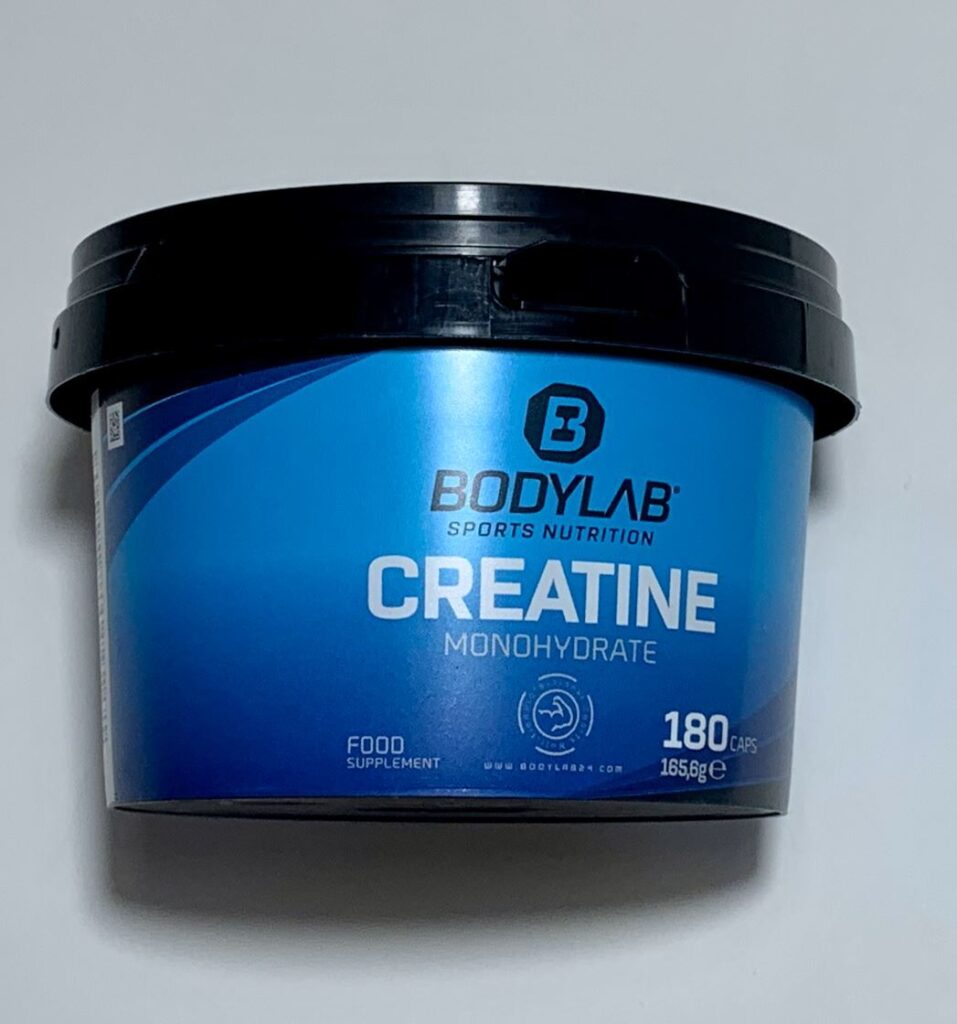
The exercise benefits as well as the cognitive benefits of creatine are due to the elevation of cellular creatine-phosphate levels, which aid in ATP regeneration and therefore improve cellular energy generation.
Creatine also seems to have some efficacy in the treatment of depression. It even seems to be able to induce mania in bipolar people, albeit rarely. An ability to induce a manic switch is an indicator that it is doing something in the nervous system.
L-carnitine
I take 500mg of acetyl-L-carnitine per day. I do not take more than this because, in some people, L-carnitine can be metabolized to TMAO, which is thought to increase the risk for cardiovascular disease.
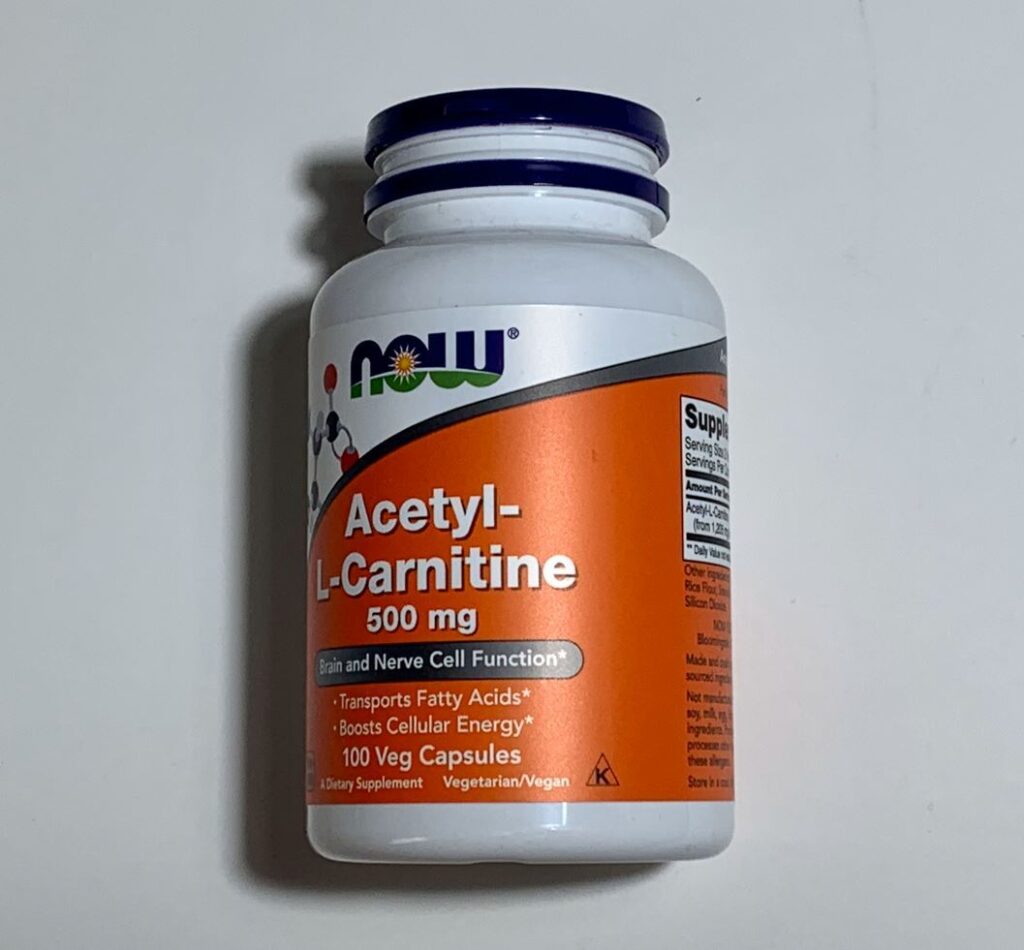
L-carnitine is a mitochondrial fatty acid shuttle. By improving beta-oxidation, it is an antioxidant with potentially nootropic and exercise benefits. L-carnitine is also associated with a reduction in liver enzymes, presumably because of its involvement in fatty-acid oxidation and/or its anti-inflammatory properties.
Alpha-lipoic acid
I take 100mg per day. ALA may be one of the most potent antioxidants out there because it induces the transcription of antioxidant enzymes at the genetic level instead of just being an antioxidant itself. Furthermore, ALA is a metal chelator.
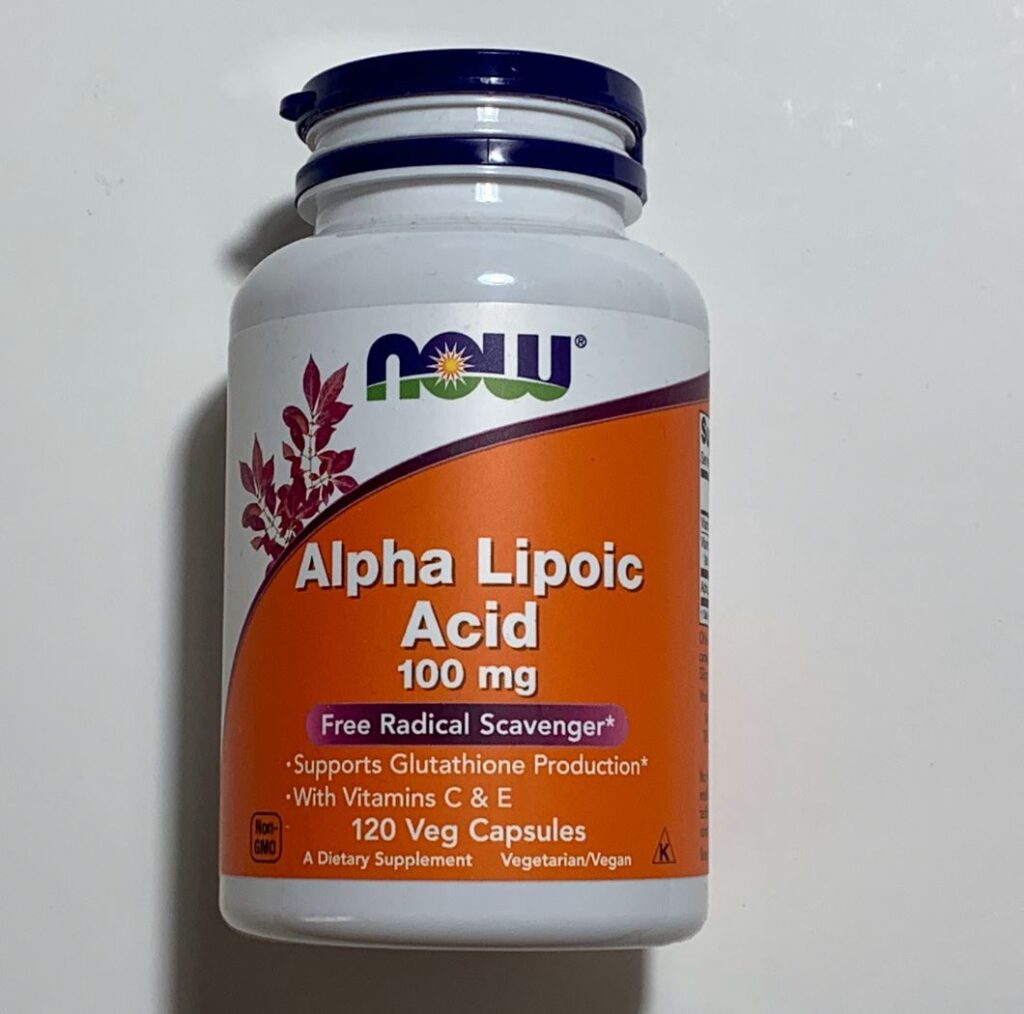
I am still quite unsure about the risk-benefit ratio of antioxidants because in recent years it has become clear that oxidative stress is not merely pathological but ROS leaks serve as signals in many diverse physiological circumstances, such as immune activation and intracellular homeostasis. For now, I keep taking low doses of different antioxidants.
Beta-alanine
I take one gram per day. Beta-alanine is the precursor to carnosine, which protects against exercise-induced lactic acid production (it buffers cells against changes in pH). Beta-alanine is also thought to have anti-glycation and metal-chelation benefits.
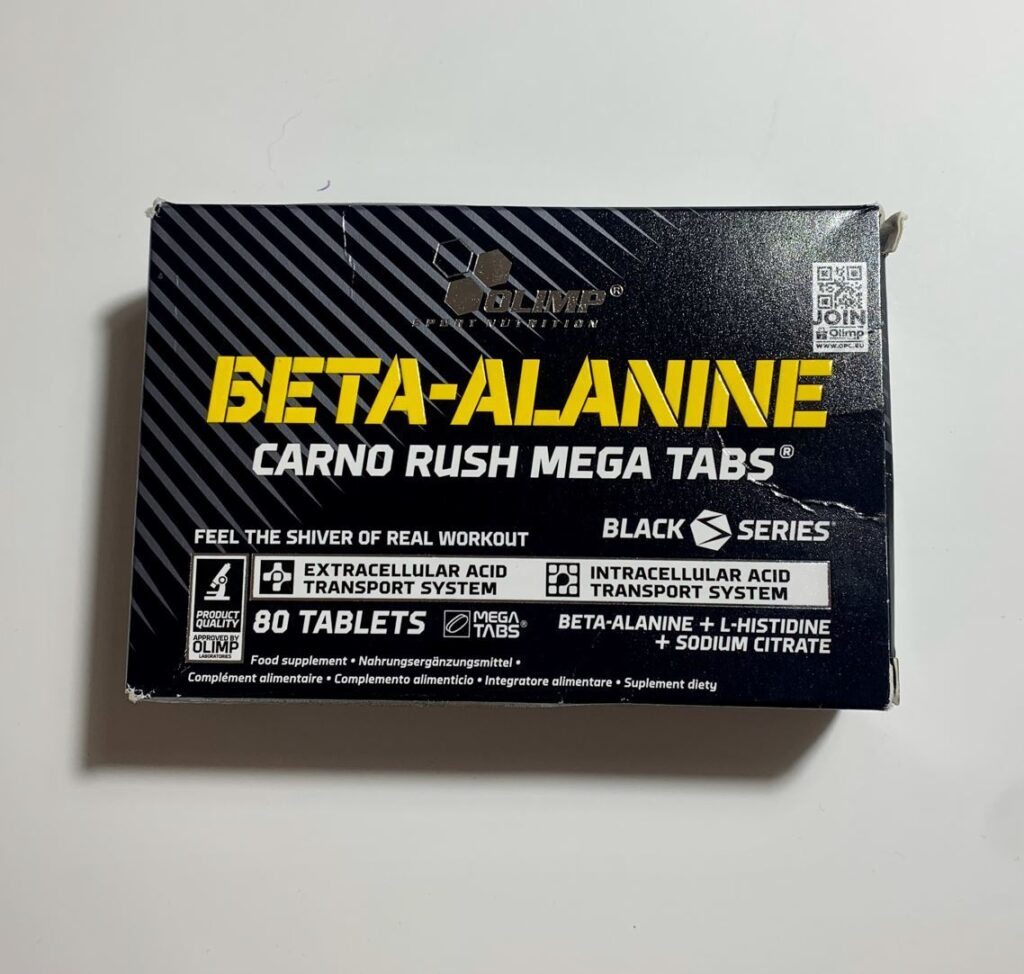
Some people believe that beta-alanine is a reasonably powerful anti-aging supplement, though conclusive evidence is lacking. I like the whole-body tingling it causes.
L-citrulline
Sometimes I take 1g of l-citrulline before exercising but most of the time I forget it.
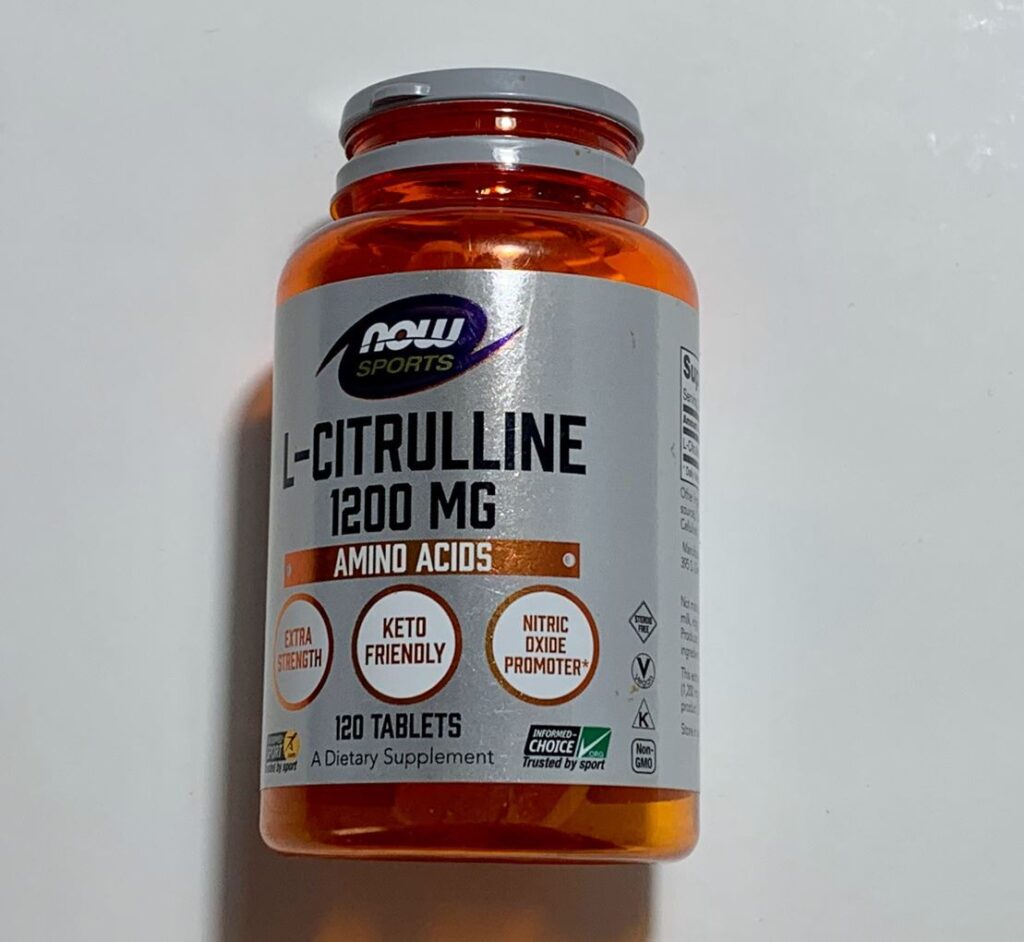
Citrulline converts into L-arginine, which is a precursor to nitric oxide (NO). NO is a vasodilator, and crucial to cardiovascular health. Of note, a lot of the anti-aging benefits from vegetables may come down to their nitrate content.
Taurine
I take 500mg of taurine at night. Taurine is known to increase GABAergic neurotransmission, and therefore may help with deep sleep. Furthermore, taurine is an osmolyte, a metal chelator, and a glycation inhibitor. Whether this is of any practical relevance, I have no idea.

Interestingly, taurine is an essential vitamin for cats, as cats are incapable of synthesizing it by themselves.
Coenzyme Q10
I take 60mg of CoQ10 per day. CoQ10 is an electron shuttle in the electron transport chain. It is also an antioxidant. According to published literature on the subject, it may increase time to exhaustion and anaerobic threshold in both trained and untrained individuals.
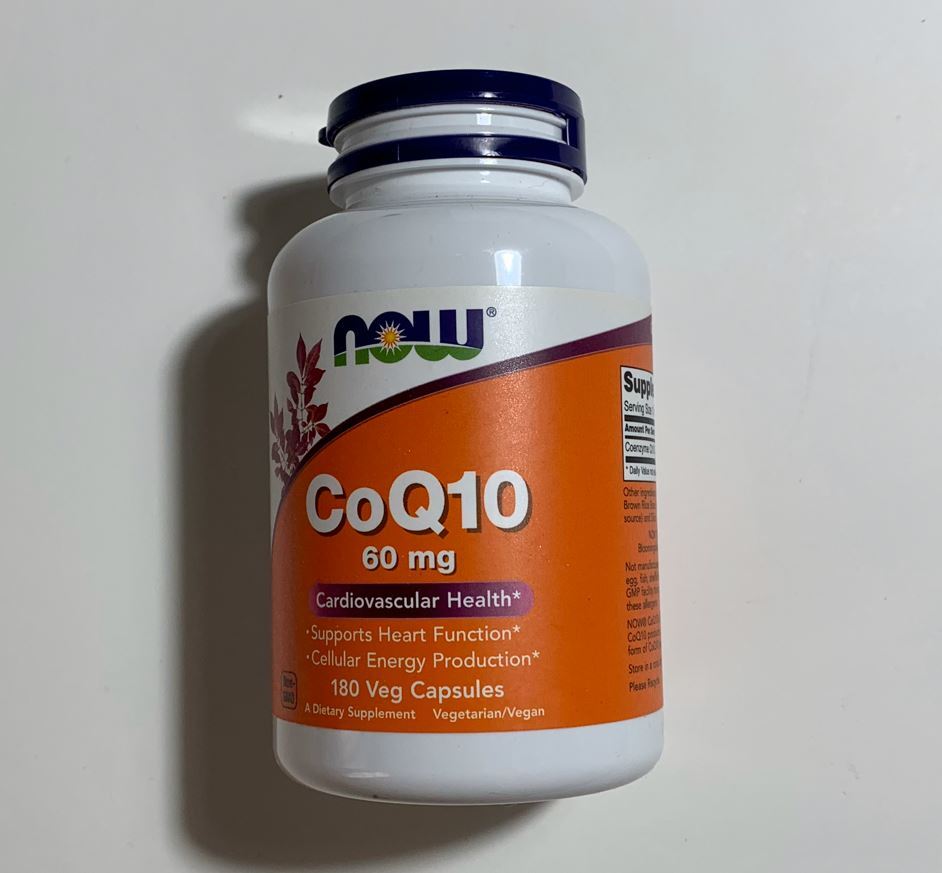
It is also frequently added to statin treatment because statins impair CoQ10 synthesis.
BCAAs
I want to quote examine.com, which I fully agree with: “While these amino acids play a role in muscle growth, they’re nearly always a waste of money to supplement with.”
A lot of people claim that BCAAs make sense during fasting. However, while they may possibly help a teeny-tiny bit to prevent muscle catabolism, leucine is known to increase mTOR activity, which is counterproductive to the benefits of fasting. I discuss my experience with fasting in more detail here.
N-acetyl cysteine (NAC)
I take 300mg of NAC per day. N-acetyl cysteine is a precursor to L-cysteine, which is a component of glutathione, one of the body’s most important intracellular antioxidants. If taken orally, NAC is a great way to support liver antioxidants.
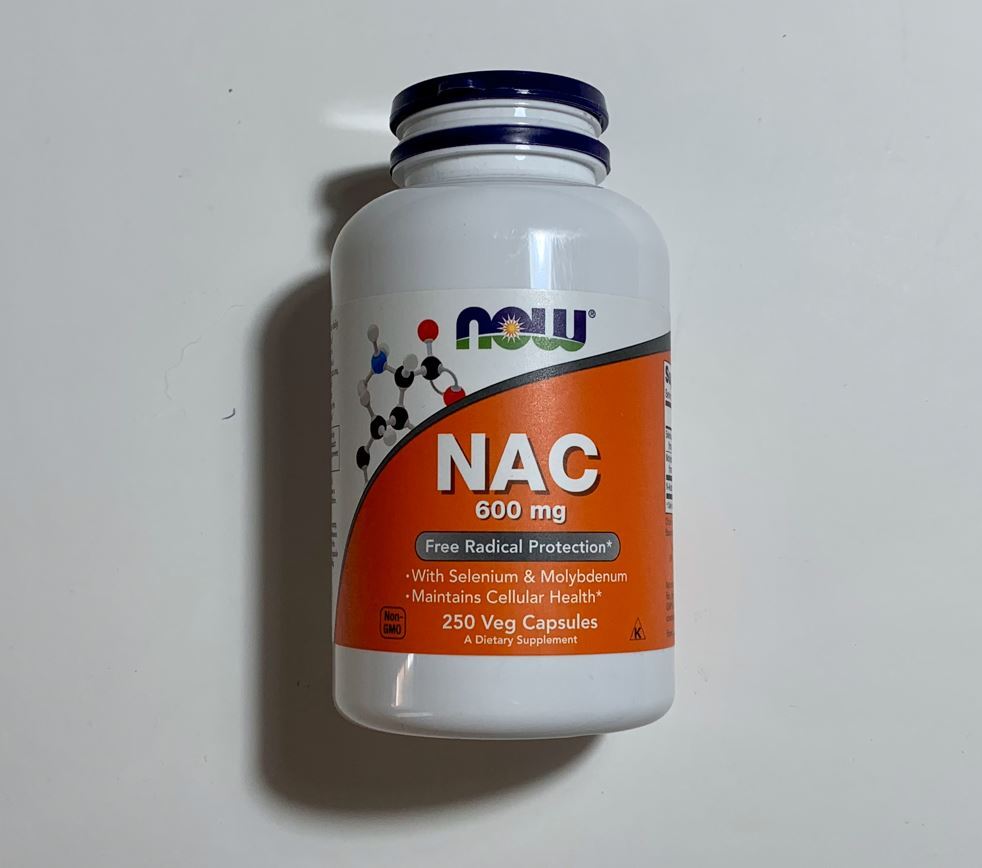
Furthermore, NAC is thought to “normalize” glutamate signaling and may therefore be useful for states characterized by impulsivity (e.g., anger, anxiety, OCD, or addiction). However, the other side of the coin is that high doses of NAC may lead to emotional blunting. While some emotional blunting may be desirable in states of depression and anxiety, it is not particularly life-enhancing – quite the opposite. Depression is discussed in more detail here.
For me, the selling point of taking NAC was a genetic test. I have a deleterious SNP in a specific N-acetyltransferase, which is associated with lower NAC levels and therefore carries a greater risk of age-related hearing loss. I discuss my other genetic test results in more detail here.
Glycine
I take 5g of glycine at night. I mainly take it because it improves my sleep, which it does in a way I can subjectively feel.

Glycine is an amino acid that serves as a neurotransmitter, acts as a precursor to some other molecules, and regulates the activity of certain enzymes in various metabolic pathways. Glycine plays a special role in methionine metabolism, which is associated with mTOR activity.
Interestingly, glycine passed the Interventions Testing Program (ITP) of the National Institute of Aging, prolonging the lifespan of mice by a tiny but statistically significant amount (4%). However, they put glycine in the chow, which is different than a megadose on an empty stomach, thereby probably having a different safety and effect profile. Paradoxically, glycine is known to activate mTORC1, which should have pro-aging effects.
Phosphatidylcholine
I take 2400mg of phosphatidylcholine per day, which contains about 300mg of choline. Similar to other nutrients found in animal products (such as carnitine, creatine, carnosine, etc.), humans are capable of de novo synthesis but usually endogenous choline synthesis is insufficient to meet “optimal” requirements. Choline is one of these nutrients that a lot of people are probably deficient in.

Choline is a methyl-group donor. It is required for the synthesis of cell membrane lipids including sphingomyelin and phosphatidylcholine, the synthesis of the neurotransmitter acetylcholine (discussed in more detail here), the synthesis of tri-methyl-glycine (discussed previously), the synthesis of S-adenosyl-methionine (discussed shortly), and the synthesis and export of VLDL particles.
A choline deficiency is associated with decreased cognition, depression, atherosclerosis, increased homocysteine levels, and fatty liver disease.
I chose phosphatidylcholine as my choline source because it is well absorbed and because it has a lower risk to be metabolized into TMAO by intestinal bacteria (which increases the risk for atherosclerosis).
Occasionally I take 300mg alpha-GPC, another choline precursor, on days I am particularly tired. Relatedly, I discuss my experience with nicotine here.
5HTP
5HTP is a precursor to serotonin. I do not take 5HTP and if I would, I would take a catecholamine precursor such as L-tyrosine along with it for monoamines to not get out of balance. Monoamines are discussed in more detail here.
Subscribe to the Desmolysium newsletter and get access to three exclusive articles!
Prebiotics and probiotics
Anecdotally, some of my friends benefitted from specific probiotics (e.g., irritable bowel syndrome) whereas others were harmed by them (e.g., indigestion, brain fog, etc). It seems that whether someone benefits from probiotics depends on the probiotic in question and also on the person.
Prebiotics, and particularly probiotics, have always made things worse for me. Nonetheless, during my “gut flora tunnel vision”-time, I did care about my gut health way more than I do now.
Some of the things I did:
- I avoided gut-irritating stuff such as carrageenan, NSAIDs, and alcohol. I also avoided eggs as I seem to react badly to them. Furthermore, I avoided probiotics as, all things considered, they seem to be a net harm for most people.
- I focused on a diet rich in whole foods and fiber.
- I supplemented with psyllium husk (10g/d) to increase bulk, promote bowel movements, and increase the microbial secretion of short-chain fatty acids (SCFA).
- I supplemented with inulin (5g/d) to help with increasing “good” gut bacteria, such as certain species of lactobacilli and bifidobacteria. Acacia fiber is very similar and can be called a “slow-release inulin” and was particularly helpful to adapt to inulin supplementation.
- I ate small amounts of fermented foods every day (e.g., a couple of spoons of sauerkraut). However, it seems that some people tolerate them poorly. For example, a friend of mine reacts badly to them, because, according to him, he gets swamped with histamine, which may be able to cross the gastrointestinal barrier in individuals with increased gastrointestinal permeability (“leaky gut”).
- Twice, I tried to “reset” my gut flora by a taking short course of rifaximin, a gut-targeted broad-spectrum antibiotic.
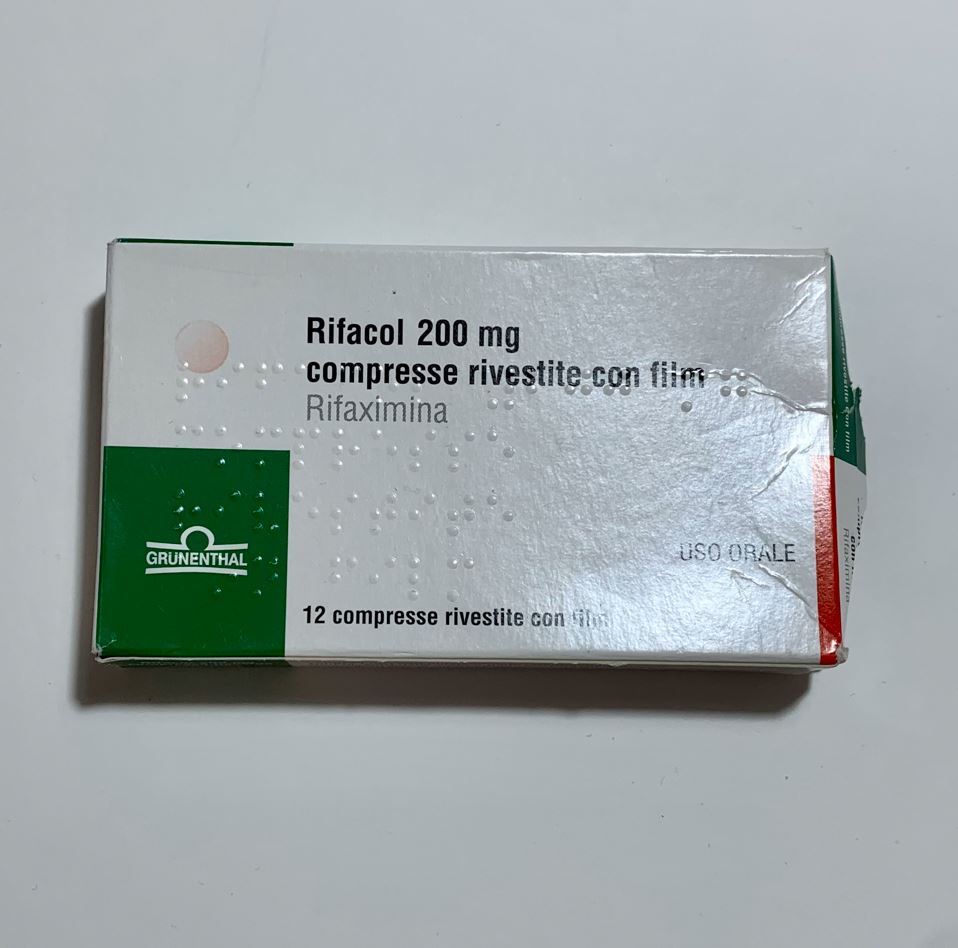
I believe that the fuzz around the microbiome is one of the greatest shitshows currently going on in the health sphere. I share my thoughts on the microbiome mania in more detail here.
S-adenosyl-methionine (SAM-e)
In the past, I have been taking low doses of SAMe (200mg) for a prolonged period of time. It is the only supplement I have ever tried that has true mood-elevating effects. Unfortunately, recently a study came out suggesting that SAMe may be potentially epigenotoxic, so I stopped.
SAMe is a molecule that serves as a primary methyl donor in several biochemical reactions. These methylation reactions are crucial for the regulation of gene expression, the synthesis of neurotransmitters, and the maintenance of cellular structure and function.
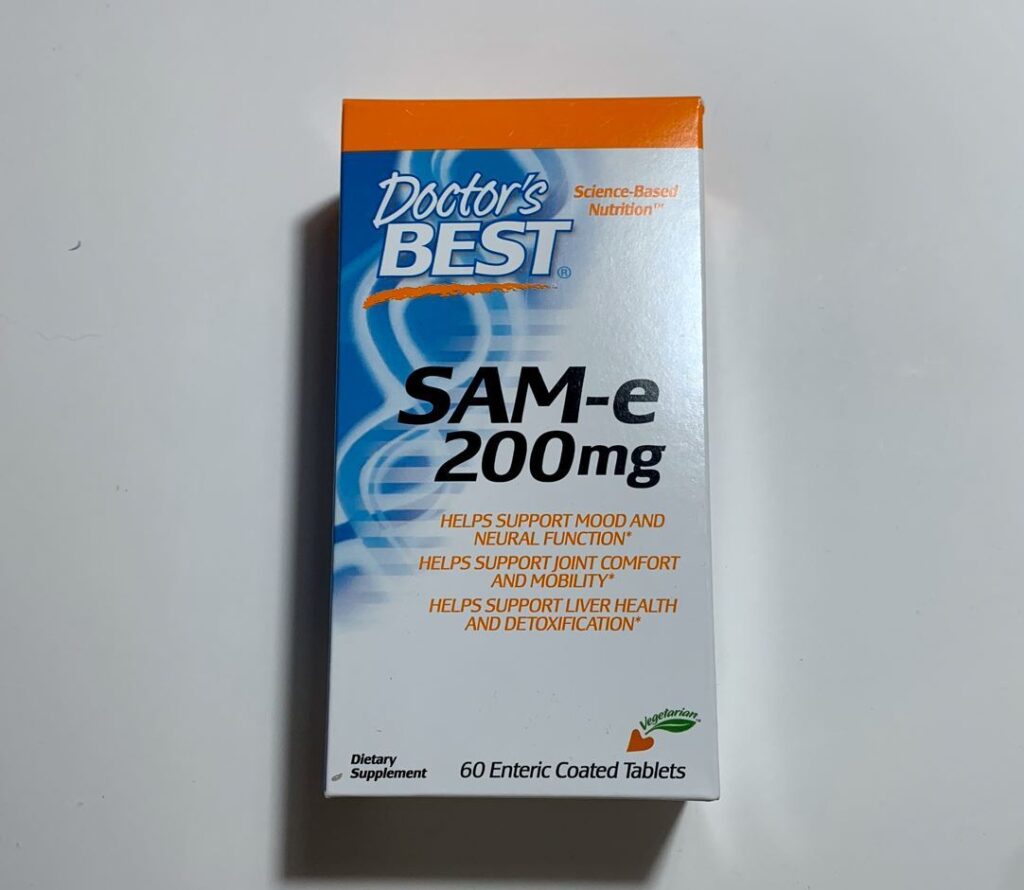
Because SAMe is quite powerful it deserves its special mention. I discuss it in more detail here.
Peptides?
I discuss my personal experience with peptides and why I am literally scared of using them in more detail here.
My supplement stack
Morning:
- 1g sodium chloride
- 2400mg lecithin
- 500mg L-carnitine
- 1g TMG
- 1 mg L-methyl folate
- 2g creatine HCL
Noon:
- 1g beta-alanine
- 45mcg VitK2
- 100mg alpha-lipoic acid
- 2g EPA/DHA
- 3.000 IU vitamin D
- 250mg VitC
- 60mg CoQ10
Evening:
- 400mg magnesium
- 500mg inositol
- 5g glycine
- 500mg taurine
- 300mg NAC
Update: Mostly out of convenience, I recently switched to taking all my supplements two times per day instead of three times per day – morning & evening, so the picture below is not up to date.

I am quite sure that some -perhaps even most- of these are a waste. However, it is hard to figure out which ones, and as MD Peter Attia likes to say, at the end of the day, 1$ is 1$.
I am also quite sure, that compared to diet, exercise, sleep, and hormone optimization, these supplements do laughingly little. I take most of them with a “just-in-case” mentality, and I am equally uncomfortable taking them compared to not taking them. Nonetheless, I have been taking these supplements for about 4-5 years now, and nothing “bad” has happened.
One of the major things I am unsure about is taking three supplements (L-carnitine, betaine, phosphatidylcholine) that potentially convert into TMAO, which is associated with cardiovascular disease.
Reading about various supplements makes it seem that each of them has great benefits for a number of domains. However, everyone who has tried various supplements and is not super prone to the placebo effect can attest to that simply not being the case.
I want to end this section with a quote from an Examine.com newsletter:
“After many years of reviewing supplement research, and publishing peer-reviewed articles on supplements, I can safely tell you: supplements aren’t among the most important parts of a typical health strategy. Some of the most important parts all happen to start with the letter “S”, funny enough, so they’re easy to remember: sleep, stress management, and socializing. These factors, along with emphasizing a diet low in ultra-processed food and getting enough movement each day, should take up a big chunk of your self-improvement efforts. If you’re spending a lot of time and money on supplements, that may be distracting from these big issues that have outsized impacts on health.”
Posting this quote may seem hypocritical from my side, but I nonetheless feel that it is worth sharing.
A note on manufacturers
The supplement market is the wild, wild west. Billions of dollars can be made very cheaply. There is no regulatory oversight that would stop supplement companies from fooling customers in any way possible.
In many cases, the dosage, purity, consistency, quality, presence of byproducts, and bioavailability vary widely. Sometimes the actual amount varies from pill to pill – even within the same batch. Buying from unregulated manufacturers (i.e., supplement companies) is a hit or miss.
Even industry-leading brands like Thorne fail to disclose their CoAs (Certificates of Analysis) from 3rd party testing facilities. Given that independent positive CoAs are a huge advertisement, there is no reason to keep these private unless they either do not do 3rd party testing or worse, they do but frequently fail.
I personally only buy from Now Foods, Jarrow, Life Extension, and a couple of European brands.
Why I avoid herbal supplements
I experimented with a variety of herbal supplements (e.g., rhodiola, ashwagandha), but I decided to ditch them altogether. I discuss my experience and thoughts on herbal supplements in more detail here.
How I Biohack My Vitality
This article is a subsection of How I Biohack My Vitality.
Sources and further information
- Website: Wikipedia – Articles on each of the individual supplements
- Website: Examine.com
- YouTube: The Attia Rule of Health
Disclaimer
The content available on this website is based on the author’s individual research, opinions, and personal experiences. It is intended solely for informational and entertainment purposes and does not constitute medical advice. The author does not endorse the use of supplements, pharmaceutical drugs, or hormones without the direct oversight of a qualified physician. People should never disregard professional medical advice or delay in seeking it because of something they have read on the internet.
